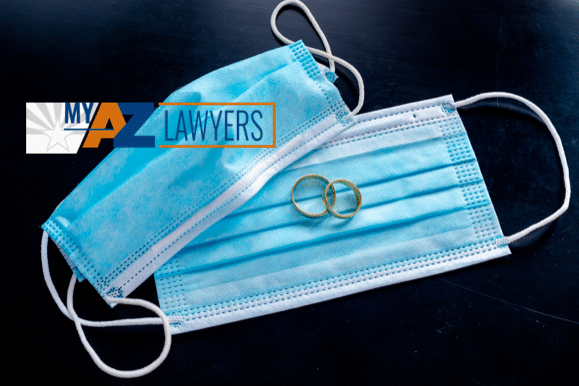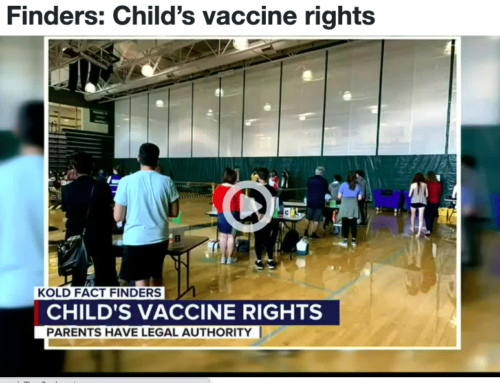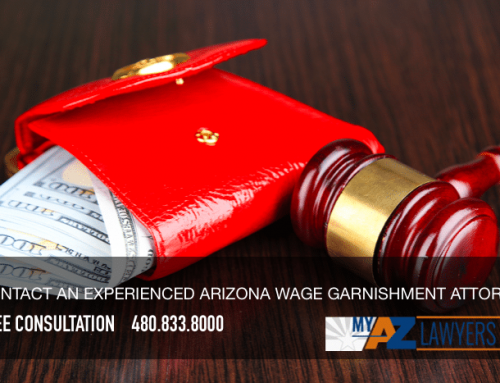Table Of Contents
Can I Get Divorced During This COVID-19 Pandemic?

Moving Out
Businesses like movers and apartment complexes have remained operating during the pandemic as essential businesses. These services may have restricted hours or social isolation protocols, so you should do your research before leaving home. On July 16, 2020, Governor Doug Ducey extended the eviction moratorium until October 31, 2020. This halts residential evictions in Arizona for nonpayment of rent. People will be cycling out of rentals more slowly, so it could take longer than usual to find a new place.
Arizona Child Custody Issues
Co-parenting during a pandemic comes with unique struggles. Many people now work from home and have to juggle remote work with all day child care and home school tutoring. Essential workers are struggling to find childcare. Having one parent move out of the home will only aggravate these struggles.
Governor Doug Ducey has set schools to reopen on August 17, 2020. However, many school districts are choosing not to reopen and continue offering virtual learning. Some schools have been offering socially isolated childcare during the summer for essential workers, and may continue to do so if the district remains remote. While funding will decrease if the district doesn’t offer in person learning, it will come at the expense of many teachers taking their retirement. Arizona teachers have already passed away due to coronavirus without schools even being open, and many aren’t willing to take that risk.
Once your petition is filed, you will probably need temporary custody orders put in place. Parents can agree with each other to deviate from these orders if necessary, but must abide by the order if they can’t come to agreement despite challenges posed by the pandemic. Do not withhold custody of your child unless they are in immediate danger. If you are unsure, contact an Arizona Family Lawyer for clarification and assistance.
Hiring an Attorney for Divorce During This Pandemic

Electronic filing for your case may only be available to attorneys, depending on the jurisdiction in which your divorce petition is filed. Your spouse will then be served with the petition and file their response. Many times, the spouse will also hire an attorney, and each spouse’s attorney may be able to negotiate a divorce settlement agreement without ever going to trial. You can also try mediation before proceeding to trial, but mediation would be conducted in person. If you aren’t able to reach an agreement at this point, the case will proceed to trial. If your spouse fails to respond to the petition or appear at trial, the judge will grant a default divorce, and the divorce will be ordered under the terms you requested in your petition.
Court Procedures During a Pandemic
While the courts did initially close except for emergency hearings, they began to open with cautionary measures in June 2020. The courts are still in Phase 1, which comes with a few requirements. Everyone in the courthouse must wear a mask. Besides staff, there are only five categories of people allowed inside the courthouse: a party to a case, victims, witnesses, attorneys assigned to a case, and jurors. You may not arrive more than 30 minutes early and must leave immediately after your hearing.
Property Division in an Arizona Divorce
Because Arizona is a community property state, both assets and debts acquired during the marriage will be split equally among the spouses upon divorce. If you have amassed debts making ends meet during the pandemic, there are benefits to filing Chapter 7 bankruptcy before your divorce. Chapter 7 wipes out unsecured debts such as credit cards, medical bills, repossession deficiencies, and personal loans. Your spouse may be ordered to pay more of the community debts in exchange for keeping a marital asset such as a house or car. If that spouse files bankruptcy after the divorce, that creditor may still pursue the other spouse for collection on that debt. Discharging debt through bankruptcy avoids that unfair outcome. Chapter 7 bankruptcy is typically discharged in 4-6 months after the date of filing, and you would only be required to attend a short 341 Meeting of Creditors with your spouse. Most 341 Meetings of Creditors are currently being held virtually. However, because Chapter 7 bankruptcy freezes your assets, your divorce can’t be finalized until your bankruptcy has been discharged.
Contact Our Arizona Law Office Today
Our Arizona Law Office offers free phone consultations with our expert Arizona family law attorneys to those who have additional questions about family law issues during the pandemic. Give us a call at (480) 833-8000 for a FREE Consultation. Your Arizona Lawyers at My AZ Lawyers look forward to assisting you.











